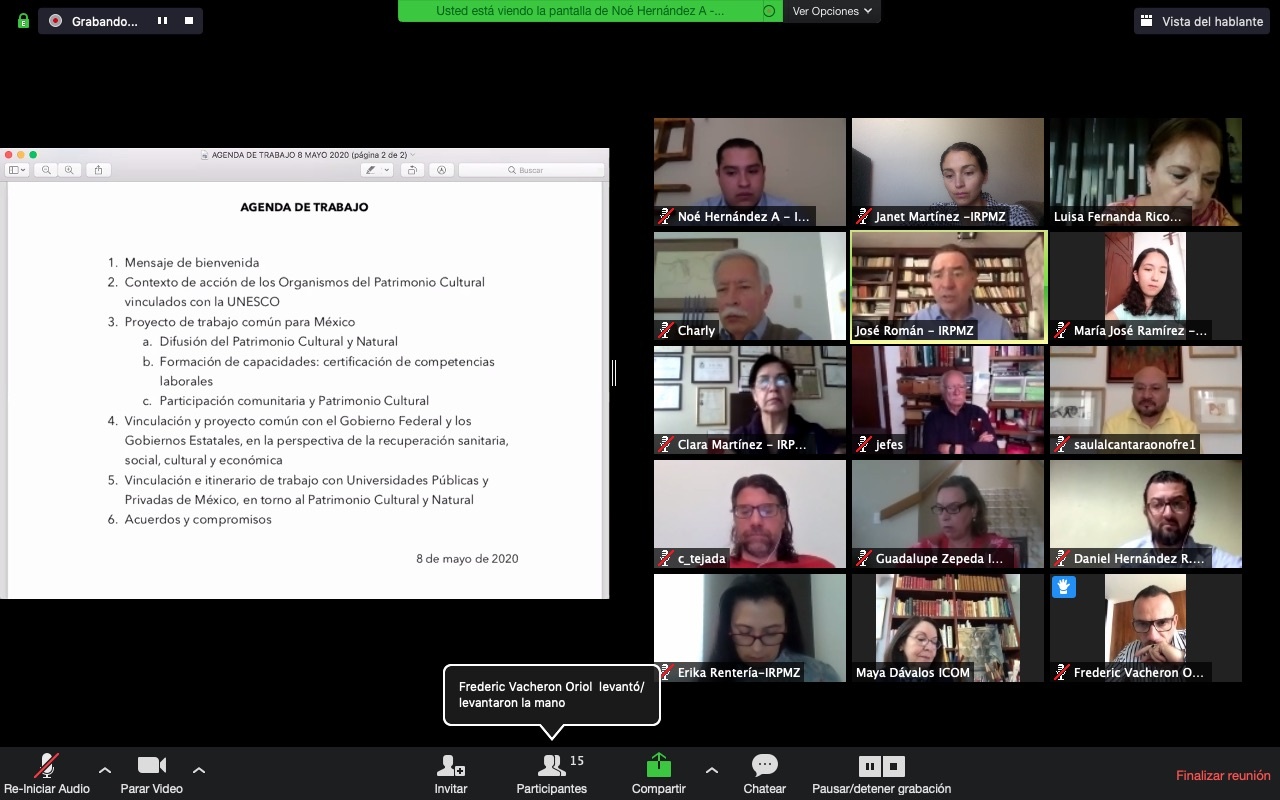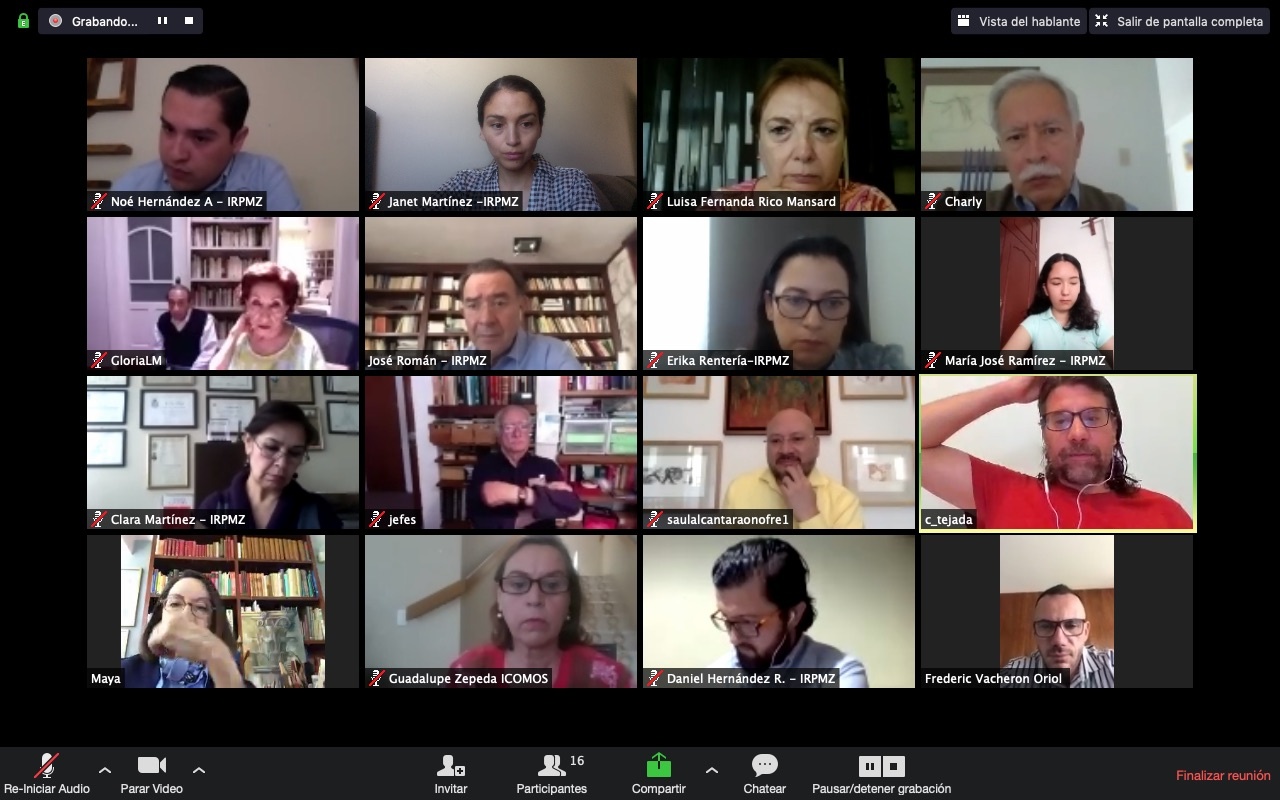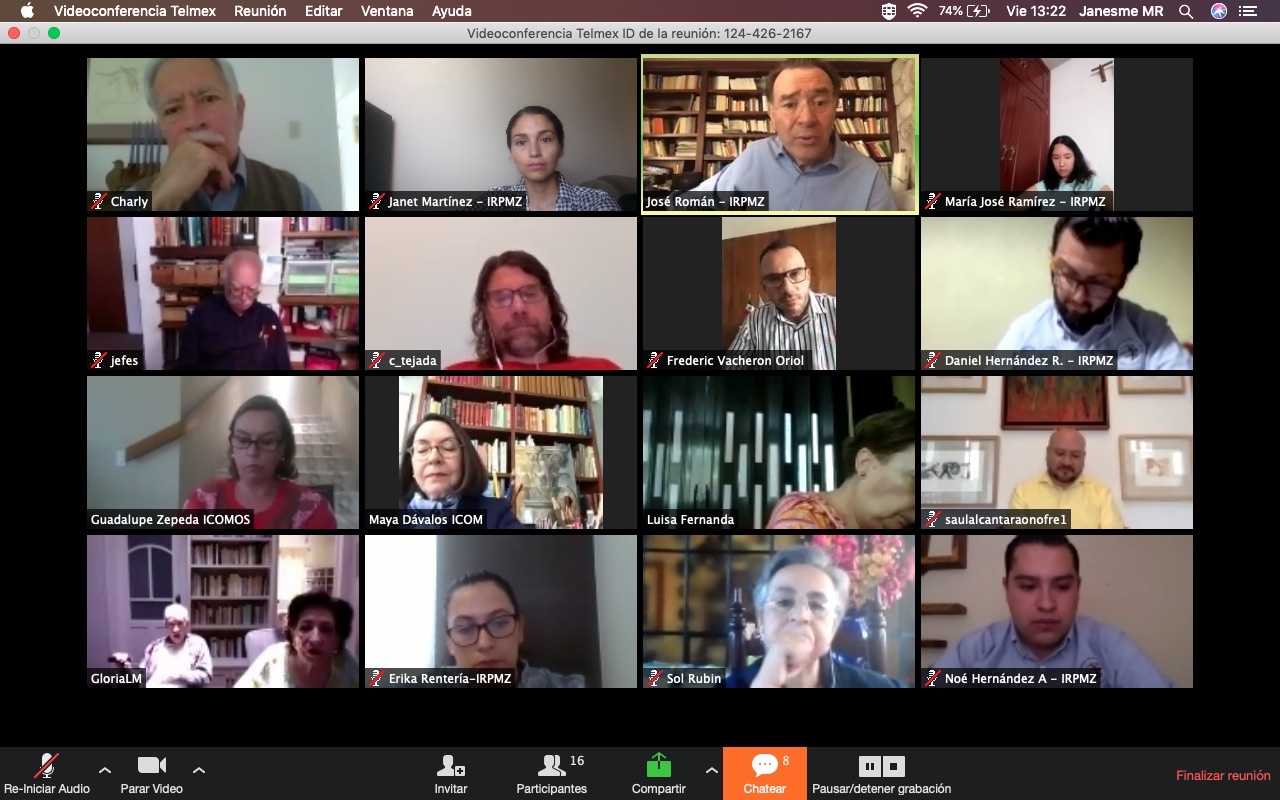Working meeting of UNESCO and World Heritage agencies
Zacatecas, Zacatecas, May 8, 2020
With the firm objective of strengthening ties between UNESCO-affiliated organizations regarding Cultural and Natural Heritage, and contributing to the implementation of the 1972 World Heritage Convention, the Regional Institute of World Heritage in Zacatecas (IRPMZ), a Category 2 Center under the auspices of UNESCO, hosted a meeting to agree on a common agenda in response to the COVID-19 pandemic in Mexico.
The meeting took place on Friday, May 8, 2020, and was attended by the working teams of:
- UNESCO Mexico, headed by Mr. Frédéric Vacheron Oriol, Director General;
- International Council of Museums (ICOM), Mexico Chapter, headed by its President, Ms. Maya Dávalos de Camacho;
- The International Council on Monuments and Sites (ICOMOS), Mexico Chapter, represented by its President, Dr. Saúl Alcántara Onofre;
- The Conservatory of Mexican Gastronomic Culture (CCGM), represented by its President, Dr. Gloria López Morales; and
- The Regional Institute of World Heritage in Zacatecas (IRPMZ), represented by its Director, José Francisco Román Gutiérrez.
After delivering the welcoming remarks on behalf of L.C. Alejandro Tello Cristerna, Governor of the State of Zacatecas and President of the Board of Directors of the Regional Institute of World Heritage in Zacatecas, encouraging participants to work together on the important role of Cultural and Natural Heritage in strengthening identity and memory during this time, as well as its sustainable use for recovery and development, the heads of these organizations shared their expectations and concerns regarding the global health crisis.
The attendees considered that we are facing a new global shift. New and significant challenges for survival, in every sense, as well as the need to create new strategies and forms of collaboration to maintain the identity and memory of communities through culture and its social appropriation.
The work agenda included the analysis of a common work agenda for Mexico, among the participating organizations, on the following points, which would consider the dissemination of Cultural and Natural Heritage, capacity building (including the certification of labor skills) and community participation in Cultural and Natural Heritage, with an emphasis on the inclusion of young people.
The urgent need to establish close ties with the Federal and State Governments, public and private higher education institutions, as well as NGOs and foundations, was also addressed. This collaboration aims to develop proposals that support society's transition during this challenging time and explore alternatives to the complex reality we now face in Mexico and the world. The diverse contributions of the multidisciplinary working group at this meeting were synthesized into a first set of agreements.
These agreements will be processed and incorporated into a formal agenda for ongoing development. The following points are noteworthy:
- Sign a letter of intent to combine the efforts of participating organizations regarding Cultural and Natural Heritage in Mexico;
- Create heritage dissemination materials as a result of joint collaboration, contributing to the initiative promoted by UNESCO;
- Work on memory and cultural heritage, combining efforts with initiatives promoted by the Federal and State Governments;
- Promote community participation in Cultural, Biocultural, and Environmental Heritage;
- Establish a strategy for relationships with universities and their museums;
- Promote youth participation;
- Strengthen the creation of educational materials on cultural and biocultural heritage;
- Strengthen the exchange of information and promote capacity building in various fields;
- Create synergies with other sectors involved in the issues we must address, such as tourism, the economy, and the environment, among others;
After agreeing to a new meeting on May 15 to follow up on the points raised, Mr. Frédéric Vacheron, Representative and Director of UNESCO Mexico, thanked the institutions for their active participation and closed the working session, emphasizing the importance of linking initiatives in the field of culture, which will have a positive impact on the conservation of cultural heritage and Mexican society.
Regional World Heritage Institute in Zacatecas
Category 2 Center, under the auspices of UNESCO




